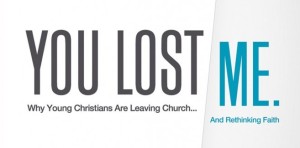
How evangelicals won a culture war and lost a generation – CNN Belief Blog – CNN.com Blogs.
Its remarkable to watch, the implosion and rejection of Boomer Evangelicalism by Millennials. I really need to get my butt in gear after a one year WJP hiatus because this is incredibly significant what Rachel is pointing out here but its more than just her voice. The entire World Vision fiasco reveals, as she puts it so well:
Christians can disagree about what the Bible says (or doesn’t say) about same-sex marriage. This is not an issue of orthodoxy. But when we begin using child sponsorships as bargaining tools in our debates, we’ve lost the way of Jesus.
So my question for those evangelicals is this: Is it worth it?
Is a “victory†against gay marriage really worth leaving thousands of needy children without financial support?
Is a “victory†against gay marriage worth losing more young people to cynicism regarding the church?
Is a “victory†against gay marriage worth perpetuating the idea that evangelical Christians are at war with LGBT people?
And is a “victory†against gay marriage worth drowning out that quiet but persistent internal voice that asks, “what if we get this wrong?”
I, for one, am tired of arguing. I’m tired of trying to defend evangelicalism when its leaders behave indefensibly.
I’m going AWOL on evangelicalism’s culture wars so I can get back to following Jesus among its many refugees: LGBT people, women called to ministry, artists, science-lovers, misfits, sinners, doubters, thinkers and “the least of these.â€
I’m ready to stop waging war and start washing feet.
The Evangelical movement has become a PAC and Millennials want nothing to do with (nor do many horrified GenXers and Boomers). Now with Joel Osteen’s lavish lifestyle and money machine has come to light, people want Jesus. They don’t want flash, they don’t want to be right over those who are wrong, they don’t want self righteous superiority or a massive concert crowd. They want Jesus. They want people who live like Jesus, love like Jesus, and are every bit uncertain, broken, and questioning as they are.
Evangelicalism is dying, much as the Mainline started in the 80s. Oddly, positions may be reversing and liturical, Sacramental, and small congregations may be our future as megaEvangelicalism starts to wither. Its a chance for us to be be community again, to be church, to be disciples. I hope those of us who lead in congregations can speak it and with our people, learn to wash feet again.







